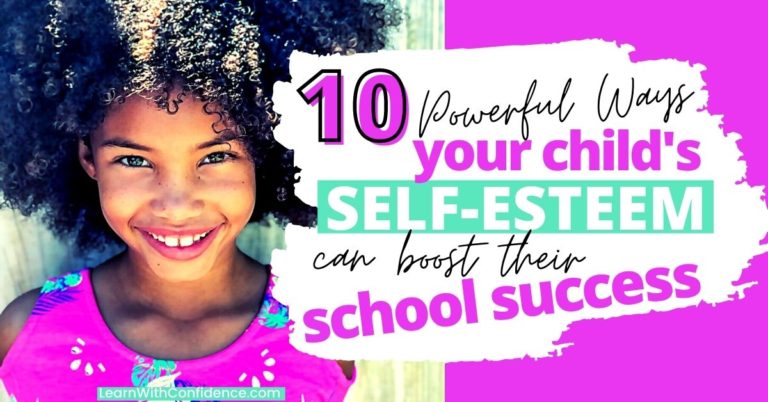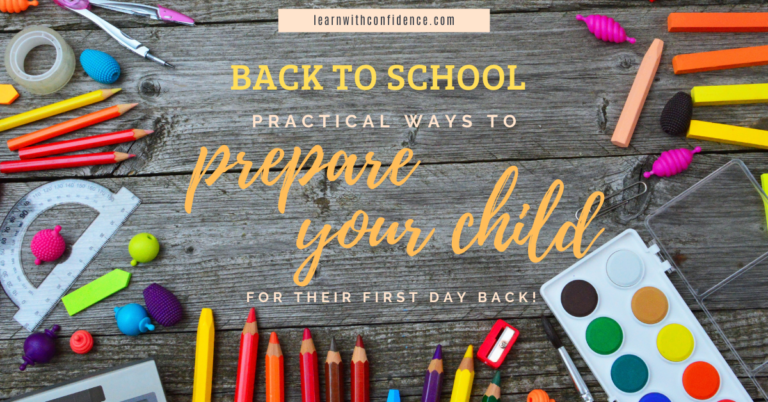How can I help my overwhelmed child?
There are few things worse than feeling like you can’t help your child when they’re struggling. Here’s how you can make all the difference, Momma, when they feel like they’re drowning in schoolwork, completely overwhelmed with it all. These very practical, action steps will help you walk with your child through this time, and equip them to overcome the overwhelm they’re feeling.

Help! I have an overwhelmed child.
Your child comes home from school and dumps her school bag on the floor of her room. She looks mad and sullen.
You ask if everything’s ok. The response – ‘I hate school.’ When she finally slumps down at her desk to do homework, she bursts into tears.
You delve a little deeper and as it turns out your child is simply drowning. She’s fallen behind in her classwork, it seems like every assignment, speech and project is due this week, she has two tests this week…and don’t forget today’s homework too!

Not to mention that her best friend is hanging out more with someone else at break times and she wasn’t picked for that sport team she was hoping to be on.
Your child is overwhelmed. There’s just so much going on. She doesn’t know how to cope, what to do, where to even begin!
That’s where you come in, Mom!
It can feel pretty frightening when your child is in a pit of despair over something like school! Your first reaction may be to swoop in and get hold of that teacher and give her a piece of your mind about how much work your child has to get done!
And yes, there is a time for that, I believe. Making sure you have a good relationship with your child’s teacher will help when conversations need to be had about what your child is, or is not, coping with!
But here’s the thing. Not swooping in might be more beneficial to your child.
What if you could
- teach your child how to cope with stress and overwhelm?
- equip and empower them to take charge and ownership?
- help your child to get organized, put a plan together and finally, take action?
What if, the next time life handed them huge a pile of everything-due-in-one-week, they didn’t feel overwhelmed, and instead jumped into it with poise and a positive attitude!
Why is my child overwhelmed with school?
There are so many situations that can cause your child to be feeling overwhelmed:
Some days, everything just lands in one week!
When your child looks at their homework diary or study outline for the week’s test and they just seem to have a load of work due this week.
Your child was sick and couldn’t attend school for a few days.
When they return, there’s all that catch up work. plus their current work they have to keep up with.
They’re struggling with a learning gap because they missed a concept a while ago.
They “wing it” as far, and for as long, as they can, but eventually, it all catches ups and makes progressing impossible.
Your child gets easily distracted in class and struggles to maintain their attention.
Or they just work more slowly than their peers so they’re struggling to keep up. There are barriers to overcome, hurdles they have to jump, and they’re feeling like they can’t get to where they need to be!
Sometimes, your child is battling to stay organized.
Everything is everywhere. They don’t even know what homework they have to do or when that test is next week or what they should be studying for it. This FREE ‘Get Organized ToolKit’ will help your child keep track of all of their homework and studying.
They have ‘other stuff’ filling their minds.
Things going on in their personal and social lives that just adds to the load they’re carrying at school and eventually, they feel like the burden is just too much!
Whatever your child’s situation, it’s horrible to watch your child feel overwhelmed and stressed out. They’re children! There’s no way they should be carrying this kind of burden!
But the good news is that they’ve got you, Momma! Being there for them and walking this road with them, helping them through this is going to change everything!
How does an overwhelmed child feel?
When your child is in this situation, they may present with an array of different “symptoms”, as you may have already seen. Some of these you may be surprised are actually related to feelings of overwhelm. But ultimately, when they feel overwhelmed and anxious, your child’s brain and body kicks into fight-flight-freeze-survival-mode.
Physically, they may experience a racing heart, a sick feeling in the pit of their stomachs, increased breathing rate, sweating. They may worry and feel afraid and despairing.
If they’re older, they can often express those feelings verbally. Your child may say things like:
- “I’m so stressed out!”
- “I can’t do all of this!”
- “I’m not coping with all this work.”
But often, these feelings of overwhelm may come out in other ways, because our kiddos don’t always have the vocabulary to express them verbally. Here are some ways they express feelings of overwhelm:
- aggression and resistance (fight response)
- avoidance and procrastination (flight response)
- feeling stuck and unable to take another step (freeze response)
Free Masterclass to help your child with Anxiety
If you want to understand your child and connect with them better, check out this FREE Masterclass about how to help your anxious child.

The vicious cycle causing your child to feel overwhelmed.
That fight-flight-freeze response is completely normal and built into our bodies to protect us from danger. The problem though, is that, when our brains are engaged in that response, the logical, reasoning part of our brain isn’t engaged. That means we can’t make decisions that can move us forward.
And so, your child find themselves in a vicious cycle:
- Falls behind, struggles with all the work
- Feels demotivated, overwhelmed and discouraged
- Avoids or resists or freezes and doesn’t do the work
- Falls further behind…
You get the picture.
You’re going to have to reach down into that vortex of despair and snatch your child up out of it! They can’t engage the logical, reasoning part of their brain; they can’t strategize and make the decisions that are going to pull them off this struggle-bus.
But you can!
How can I help my overwhelmed child?
Whether your child has an “acute” case of overwhelm (they were off from school for a week and have a pile of work to catch up). Or their situation is more of a “chronic” one (they have some of those barriers that keep setting them back). These 3 steps will equip and empower you to help your child overcome the overwhelm.
1) Reset their MINDSET to conquer in the battle of the mind.
Understand what your child may be feeling
Empathizing with your child is one of the most important ways you can help your child get through this!
Think back to a time when you have felt so stressed out, so overwhelmed. You didn’t know where to start. It seemed as though everyone wanted a piece of you and you didn’t know how to keep up with all the demands. You feel like you’re spiraling. You want to run away. Or crawl into a ball and hide. Or you’re just frozen, unable to take a step in any direction.
That’s where your child is.
They’re not maliciously putting themselves in this situation. They need your help and support. They’re capable of a lot of things but right now, they just can’t seem to find the way out of this.
You child needs a guide, a mentor, a partner. Someone who will walk with them through this – sometimes beside them cheering them on, sometimes holding their hand leading them along, sometimes full-on carrying them!
You are that person, Momma!
They need to know you believe in them
Children are desperate to please their parents. Or, at the very least, not to disappoint them. Your child needs to know that no matter what they have done, or what they will do, you are in their corner! No matter how they struggle, or mess up – they need to know you believe in them.
I love this quote:
“Courage comes from a heart that is convinced it is loved.” – Beth Moore
If you want your child to have the courage to face this overwhelm and overcome it, they’re going to need to be completely convinced that your love runs deeper than anything they can ever do to please or disappoint you.
Overcome negative thoughts and demeaning self-talk
The things our children hear us say to them becomes their inner voice.
That’s pretty scary.. But it’s also a powerful concept.
Listen to your child. What words do they say about themselves and about their abilities? What do they think about their situation? Can they identify strengths that will help lift them out of this overwhelm? Are they speaking in a demeaning way about themselves?
You can help your child change that.
- Watch how you speak about yourself.
- When you are overwhelmed, model how to speak about a situation.
- When your child uses negative words, equip them with a different perspective and a better set of words to use.
The battle is in the mind
If there’s one way to break the vicious cycle of overwhelm it’s to overcome that negative, self-deprecating mindset. Strong minds can overcome anything.
But, it is probably the hardest place to start.
Remember that ultimately, you are equipping your child with the mindset and skills they’ll need to deal with the busy-ness of life and work in the future. So, every step of the way, include them in the process and inspire them. Show them how to take an attitude of “we’re going to get all that we need, make a plan and get it done, together.” They need to believe that this is not too difficult and that they are capable of setting and achieving goals towards success in this area.
2) Develop STRATEGIES and SYSTEMS to get organized.
Make a list of tasks to accomplish.
The first practical step you need to take with your child, is figuring out where they’re at. How much have they missed? How much do they have to catch up? Is there a deadline for catching up this work?
Connect with your child’s teacher and ask for a breakdown of everything your child has missed or needs to catch up. Make sure you find out when the teachers are expecting the work to be completed and when your child will have to write any tests they’ve missed. Also make sure you have all the necessary books, textbooks and worksheets.
Armed with all that information, you can make a comprehensive list of everything your child needs to get done.
Set goals to catch up and take control.
Once you have this list – which to be fair, looks rather overwhelming itself! It’s time to set some goals!
Remember that you’re teaching your child how to cope when the things of life suddenly pile up in front of them. So, involve them in this process!
Set realistic goals, that your child is able to achieve. Obviously, there are deadlines that need to be met. You’ll need to help your child break their list down into smaller chunks so they can achieve everything they need to, by those deadlines. This goal setting resource will guide you through setting goals with your child more effectively.
At this stage of the process, it’s a high-level plan – a monthly or weekly plan of what needs to be accomplished.
Want to help your child keep track of their Homework and Studying as well as their results? CLICK HERE to grab your FREE Toolkit!
Form a strategy for getting it all done.
Once you have a good idea of what to complete on a month- or week-level, you can design a strategy for getting it done!
This is the HOW.
- How is your child going to catch up all that reading?
- What is your child going to do to finish all those pages of Math work they haven’t yet completed?
- How are they going to study for those 3 tests they missed?
This is your day-to-day action plan. Break their afternoon schedule into 15 – 30 minute slots. Make sure there are short breaks included too. And then plan out each day that week what work will be completed when.
Keep in mind that your child needs to keep up with their current work while they’re catching up. So, the time they’re spending every day on catch up work will be over and above their assigned daily homework. Be sure not to overload their afternoons with school work. They DO need to rest and relax after school as well!
3) Take ACTION and get it done!
Be your child’s accountability partner.
The best way to get your child’s buy-in, and to empower them with these skills, is to include them in every step of this process. This will assure them that you are committed to getting them through this mountain of work. Guide them through every part of the planning and strategizing; teach them the steps they’ll need to take in the future.
But now, when the work starts, you become their accountability partner. And that means that you need to be involved in checking up on them and spurring them on to achieving the goals you’ve set with them.
How much is too much when it comes to involvement?
Some children are very diligent, others aren’t. But at the end of the day, if your child is feeling overwhelmed, they’re going to need regular check-ins. It might mean going through the checklist at the end of each day, or it might mean that they must check-in with you after every task they complete. You will know what will be best for your child. You can always start with the reins quite tight and loosen them as you see your child taking more ownership and responsibility.
Making some sacrifices is necessary.
Some sacrifices will have to be made. And this may be hard for your kiddo!
Remember this process is not a punishment. So, don’t take away EVERYTHING your child enjoys. Sports, playing at home, doing hobbies, seeing friends are all important things that will actually re-energize your child and lift their spirits!
But there may be things that need to be cut out or reduced for the sake of more time for completing work. For example, you child may need to cut down on TV time or time paying computer games to free up some time in the afternoons!
And keep one day a week WORK-FREE. Set aside Saturday or Sunday for resting and recuperating, family and fun.
Reap the rewards.
Make sure that you have a physical checklist your child can use to check off items. There’s nothing more rewarding, when you feel overwhelmed, than seeing that you’re making some headway, you’re getting through it bit by bit.
You have set some goals with your child, so when they achieve them, that needs to be celebrated! You can decide what that celebration involved – maybe it’s an extra break, a bit more screen time, an outing to their favorite, a toy or other gift they’ve been wanting. Set your child’s rewards, based on the size of their goals.
Remember that the goal is always to encourage and uplift them, to teach them to celebrate the wins – big and small, to show them that they CAN actually do great things when they put their hearts and minds into it!
Overcoming the overwhelm
You’re a mom. You completely understand what it feels like to be overwhelmed. And even though it is less than wonderful in the moment, it has equipped you to help your child through this difficult time they’re facing too! Overwhelm is a reality of life. Sometimes life just gets hectic!
Your love for your child, your empathy for them, your willingness to walk beside them – even carrying them if necessary – will make all the difference to their ability to overcome the overwhelm they’re facing! As you connect with your child and guide them through these strategies, you are empowering them to take action when they feel overwhelmed. So they never have to feel hopeless and completely stressed out again!
Save and Share this Post
Pin this image to your favorite parenting board on Pinterest and share it with your momma friends who could use some great tips about how to help their overwhelmed children!


I would love to connect with you and include you in this community of Mommies as we support each other and grow together to become the best moms we can be!
Please subscribe to my emailing list here and I’ll make sure I keep you in the loop on all the latest blog posts, freebies and resources!








